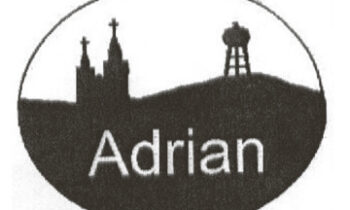American Red Cross will be in Adrian on Wednesday, July 29th from 1:00 to 7:00 p.m. or on Tuesday, July 28th at the American Legion in Lismore from 2:00 to 7:00 p.m.!
July is filled with fireworks, hot dogs, parades and family fun! This summer, the American Red Cross is asking blood donors to add a spark in someone’s life by beginning or continuing with a lifesaving tradition and help Meet the Need by making an appointment to donate blood. During the summer your gift of blood donation is especially important. Give a little spark of yourself and donate blood. When you give blood to the Red Cross, you can change a life, starting with your own.
Collecting blood during the summer months is often more difficult than during other times of the year. Up to 20 percent of blood donations made to the Red Cross come from colleges, universities and high schools. When school is out of session during the summer, these donations can drop by as much as 53 percent. Did you know that the average blood donor gives less than two times a year? It is important to remember that you can donate whole blood every 56 days.
With the recent outbreak of coronavirus disease 2019 (COVID-19) continuing to spread in the U.S., I recognize that you may be concerned about the health and safety of being a blood donor. The Red Cross wanted to proactively address this concern and assure you that blood donation is a safe process, and people should not hesitate to give and receive blood. They are dedicated to ensuring the safety of the donors as well as their employees and volunteers as they continue to run their blood drive operations.
Safety First
At each blood drive, Red Cross employees follow thorough safety protocols including wearing gloves and personal protective gear, wiping down donor-touched areas after every collection, using sterile collection sets for every donation, and arm scrubbing. These mitigation measures will help ensure blood recipient safety, as well as staff and donor safety in reducing contact with those who may potentially have this respiratory infection.
In addition, please note that there are no data or evidence to show that this coronavirus can be transmissible by blood transfusion, and there have been no reported cases of transmissions for any respiratory virus including this coronavirus. Nonetheless, the Red Cross has implemented new blood donation deferrals out of an abundance of caution, asking individuals to postpone their donation for 28 days if they meet certain risk criteria.
Moving Forward
In the days and weeks ahead, we will continue to monitor this evolving situation. If additional safety enhancement tactics are implemented, we will be sure to inform you. For the latest information on this coronavirus disease, you can also visit the U.S. Centers for Disease Control website.
The Need Is Great!
Our efforts to deliver our lifesaving blood services mission have never been more important. Our drives will help keep the blood supply stable during this challenging time and prevent shortages that could impact patient care. OUR INVENTORY IS VERY LOW. Please help support us by donating and encouraging others to donate. Only by working together can we ensure patients continue to have access to blood products.
Don’t forget you can save time at their next donation by using RapidPass to complete their pre-donation reading and health history questionnaire online, on the day of the donation, prior to arriving at the blood drive. To get started and learn more, visit redcrossblood.org/RapidPass and follow the instructions on the site.
Again we strongly encourage everyone to make an Appointment by calling Alan or Cindy Cox at 483-2218 or evenings 507-360-0537. Walk-ins are also welcome during the bloodmobile. We will again have two double red cell machines available at the blood drive, height and weight requirements for this type of donation have changed so that more donors are eligible to donate two units of red cells. It is important for blood donors to start adding iron rich foods to their diet before donating blood so that they are not deferred due to a low hemoglobin level. For example, eating red meat, poultry, and iron-fortified cereals will increase your hemoglobin level.
We would like to encourage everyone to stop at the bloodmobile on Tuesday, July 28th at the American Legion in Lismore from 2:00 to 7:00 p.m. or on Wednesday, July 29th from 1:00 to 7:00 p.m.
Alan & Cindy Cox
Adrian Coordinators






